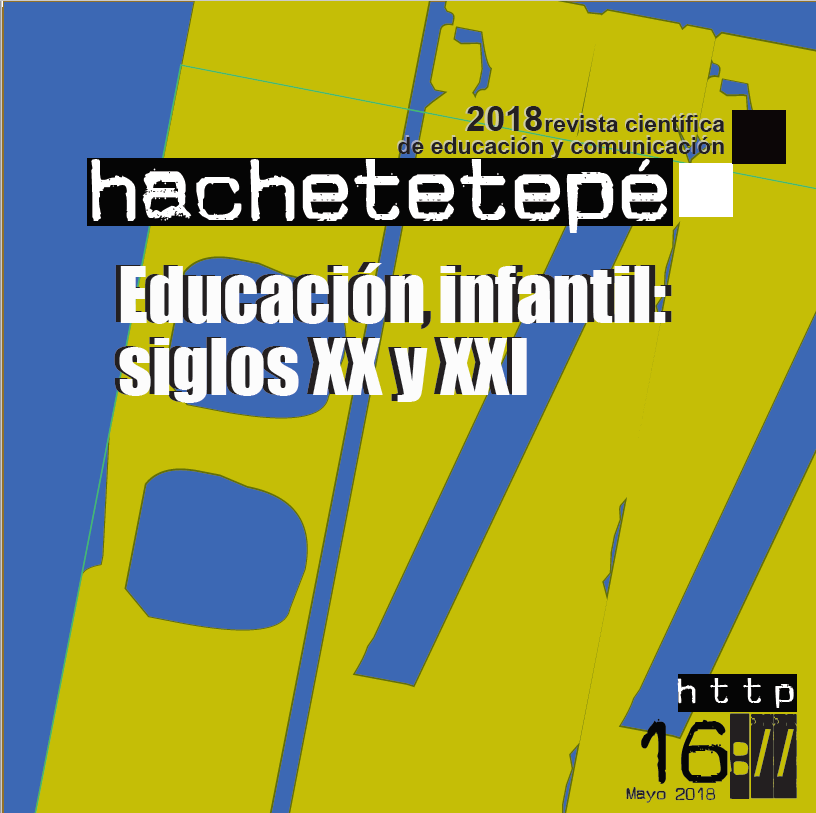Towards the search for educational "Nirvana": a pilot experience in learning communities at the CPR "San Hilario de Poitiers" in Malaga.
Abstract
Public education as a right, has relatively little time established in our society in relation to the changes that it have been evident in other areas. Likewise, it has been possible to confirm that, nowadays, changes are being proposed in the educational process and, a large part of the teaching staff considers new ways of teaching as a consequence of the continuous and dizzying changes that the children and young people will have to face when they reach adulthood. The learning communities are configured as a project that carries out successful actions that have been investigated in recent years through the INCLUDED project - an integrated project with the aim of reducing social inequalities and favoring educational inclusion. The pilot experience addressed in this article was carried out in a rural school in the region of Axarquía belonging to the province of Malaga. From this experience, our aim is that this school, next year, become a “learning community”.
Keywords
Downloads
How to Cite
License

This work is licensed under a Creative Commons Attribution-NonCommercial-NoDerivatives 4.0 International License.
Those authors who have published with this journal, accept the following terms:
- They will retain their copyright and guarantee the journal the right to first publication of their work, which will simultaneously be subject to the Creative Commons Attribution License . They may be copied, used, disseminated, transmitted and publicly displayed, provided that the authorship, url, and magazine are cited, and are not used for commercial purposes. No derivative works are allowed.
- They may adopt other non-exclusive license agreements for the distribution of the published version of the work (e.g., deposit it in an institutional telematic archive or publish it in a monographic volume) provided that the initial publication in this journal is indicated.
- Disseminate your work through the Internet (e.g., in institutional telematic archives or on your website) once the manuscript is accepted, which may lead to interesting exchanges and increased citations of the published work. (See The effect of open access).
Hachetetepé. Scientific journal of education and communication does not charge a fee for the submission of manuscripts or for the publication of its articles.
References
Bauman, C. (2007).Tiempos líquidos. Barcelona: Tusquets.
Denzin N.K., y Lincoln, Y S. (2012). El campo de la investigación cualitativa. Barcelona: Gedisa.
Flecha García, R. y Puigvert Mallar, L. (2002). Las comunidades de aprendizaje: Una apuesta por la igualdad educativa. REXE: Revista de estudios y experiencias en educación, 1; 11-20.
Flick, U. (2007). Introducción a la investigación cualitativa. Madrid: Morata.
Gantivia Silva. J. (1989). La ilustración la escuela pública y la revolución francesa. Revistaun, 21; 22-29.
Glaser, B. y Strauss, A. (1967). The Discovery of grounded theory: strategies for qualitve research. Londres: Routledge.
Goetz, J.P. y Lecompte, M.D. (1988). Etnografía y diseño cualitativo en investigación educativa. Madrid: Morata.
Moreno Burriel, E. (1998). Historia de la escuela pública en España: balance de dos siglos. Granada: Servicio de publicaciones del sector de enseñanza de CSI-CSIF.
Palacios, J.; Marchesi A.; Coll, C. (2002). Desarrollo psicológico y educación. Madrid. Alianza editorial.
Pérez, M.J. Los 20 retos de la educación del siglo XXI. ABC familia. Recuperado de http:/www.abc.es/
Robinson, K. y Aronica, L. (2009). El elemento. Bogotá: Grijalbo.
Vygotsky, L. (2012). El desarrollo de los procesos psicológicos superiores. México. Austral.
Wild, R. (2012). Libertad y límites. Amor y respeto: lo que los niños necesitan de nosotros. Barcelona. Herder editorial.






